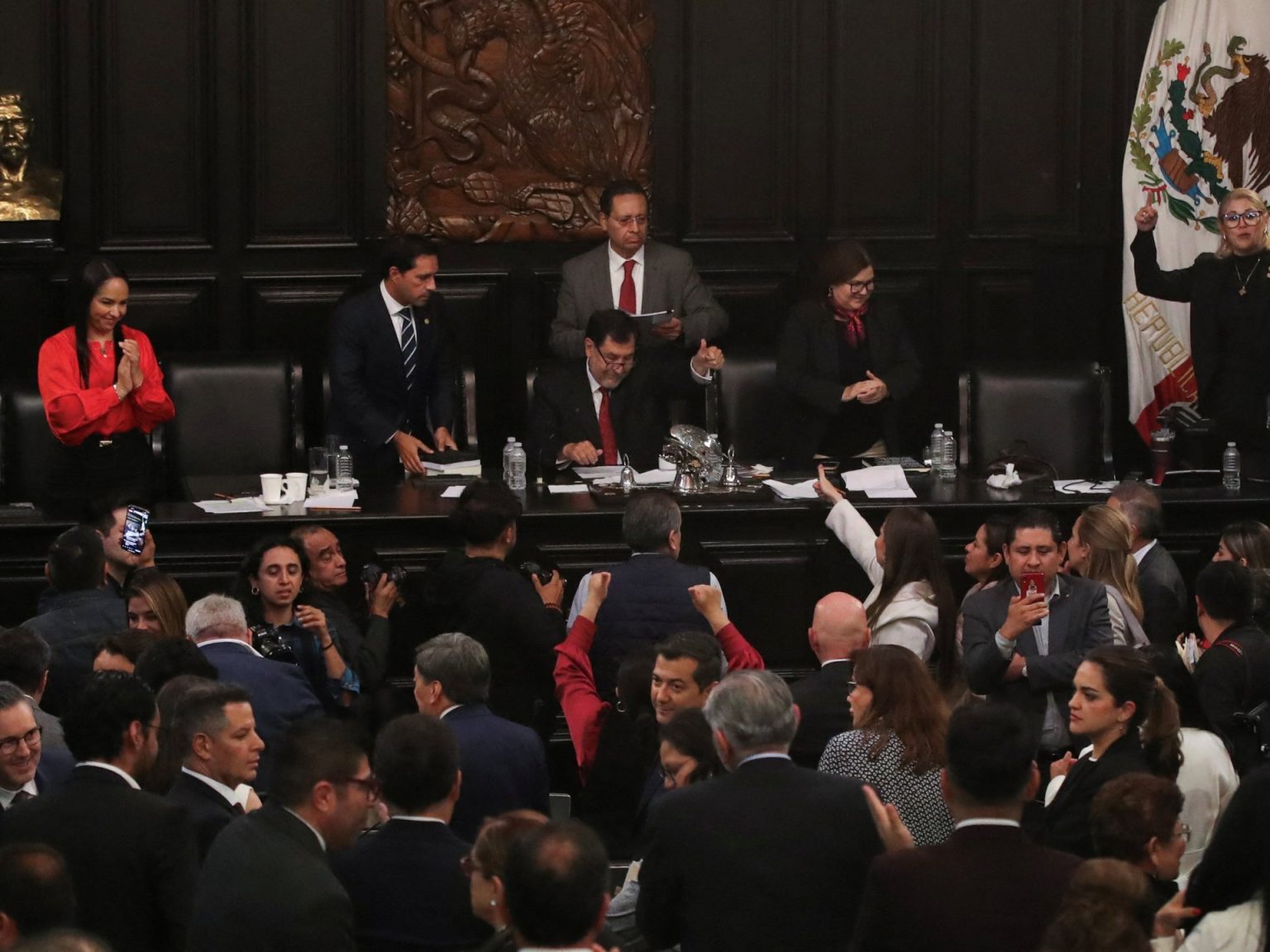Mexico’s Senate recently approved a controversial judicial overhaul pushed by outgoing President Andres Manuel Lopez Obrador, despite interruptions from protesters who broke into the upper house to block the vote. The reform, which was approved with a two-thirds majority, will allow voters to elect judges at all levels, including the Supreme Court, making Mexico the world’s first country to take this approach. Lopez Obrador believes that the changes will help the judiciary break ties with the country’s powerful elite and white-collar criminals, but critics argue that it could threaten judicial independence and disrupt the system of checks and balances.
Opponents of the reform, including court employees and law students, have been holding protests for weeks, expressing concerns that elected judges could be vulnerable to pressure from criminals in a country where drug cartels regularly use bribery and intimidation to influence officials. The new measures will also lead to the popular election of over 6,500 judges, magistrates, and ministers, while reducing the number of Supreme Court judges, their term lengths, and work experience requirements. The reform will be implemented in stages, with elections to replace most judges scheduled for 2025 and the remainder in 2027. However, the large number of positions up for vote may make it challenging for citizens to be well-informed about all candidates.
The reform not only raised concerns domestically but also strained relations with other countries, including the United States and Canada. US ambassador Ken Salazar warned that the changes could pose a significant risk to Mexican democracy and enable criminals to take advantage of politically motivated and inexperienced judges. The United Nations special rapporteur on the independence of judges and lawyers also expressed deep concerns about the plan, emphasizing the importance of an independent and impartial judiciary as a human right essential for protecting rights and preventing power abuses. Human Rights Watch urged lawmakers to reject the reform, arguing that it would seriously undermine judicial independence and violate international human rights standards.
Despite the controversies surrounding the overhaul, Lopez Obrador has insisted that there is no legal basis for the Supreme Court to halt the reform and that it will be approved by state-level congresses where the ruling coalition has the majority. The reform will come into effect once it is published in Mexico’s official gazette. The lower house passed the measures earlier with ruling party lawmakers and their allies gathering in a sports center due to protests blocking access to Congress. While the reform aims to democratize the judiciary and increase transparency, critics fear that it may lead to increased politicization of the justice system and weaken the independence of the judiciary, ultimately eroding the democratic principles in Mexico.
Overall, the approval of the judicial overhaul in Mexico has sparked a debate between those supporting the move towards a more democratic system where judges are elected by the people and those worried about the potential consequences for judicial independence and the rule of law. The reform’s impact on Mexico’s democracy, human rights standards, and international relations will be closely monitored as the country moves forward with the implementation of these significant changes to its judicial system.


